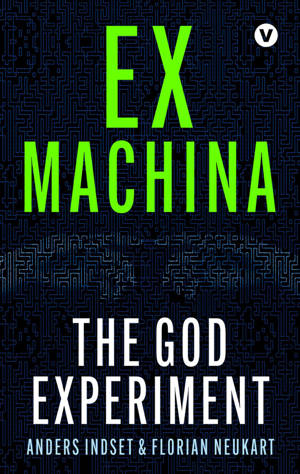
- Retrait gratuit dans votre magasin Club
- 7.000.000 titres dans notre catalogue
- Payer en toute sécurité
- Toujours un magasin près de chez vous
- Retrait gratuit dans votre magasin Club
- 7.000.0000 titres dans notre catalogue
- Payer en toute sécurité
- Toujours un magasin près de chez vous
24,95 €
+ 49 points
Description
The philosophical exploration of reality has fascinated humanity since Plato's Allegory of the Cave and has reached new dimensions through technological and intellectual breakthroughs. From Descartes' skepticism of sensory perceptions to Daniel Dennett's provocative "illusionism," the nature of our conscious experiences is continually called into question. Yet, while neuroscience defends consciousness as real, the debate remains alive, shaping scientific and societal discourses.With George Berkeley's subjective idealism, which defines reality as a product of perception, and the groundbreaking concepts of Mach and Einstein, our understanding of space, time, and existence has been radically transformed. These philosophical foundations pave the way for one of the most intriguing questions of our time: Are we living in a simulation? What was once the realm of science fiction now occupies the forefront of cutting-edge research inspired by quantum physics, and the theories of computation and information.In their Scientific-Philosophical work - SciPhi - Anders Indset and Florian Neukart explore the hypothesis that our universe might be part of a chain of simulations - a concept with the potential to revolutionize our understanding of existence, theology, and the laws governing the cosmos. Together they examine the roles of computability, entropy, and the boundaries of physical laws within this chain of simulations. Could a collapse occur if resources are exhausted? And what does this mean for the notion of an infinite, external entity?With a clear focus on experimental approaches, Indset and Neukart analyze how we might uncover evidence about the nature of our reality. Although computational boundaries are still to be overcome,the authors, through observations and analysis on the simulation theories, open new perspectives on the profound questions of existence - while acknowledging the limits of current scientific knowledge.A compelling and profound book that encourages readers to think beyond the nature of reality and redefine the mystery of our existence.
Spécifications
Parties prenantes
- Auteur(s) :
- Editeur:
Contenu
- Nombre de pages :
- 184
- Langue:
- Anglais
Caractéristiques
- EAN:
- 9783911726009
- Format:
- Livre relié
- Dimensions :
- 138 mm x 16 mm
- Poids :
- 393 g

Les avis
Nous publions uniquement les avis qui respectent les conditions requises. Consultez nos conditions pour les avis.






